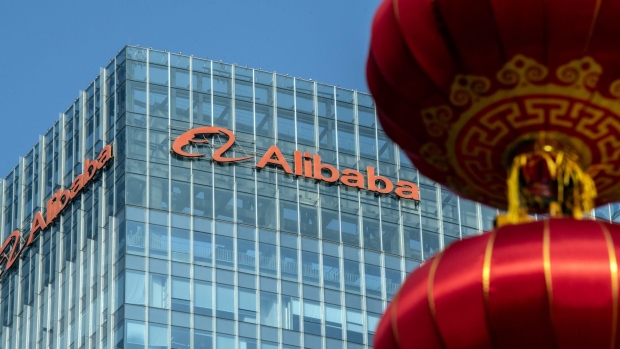Feb 26, 2024
Alibaba Discloses State Ownership in More Than 12 Business Units
, Bloomberg News

(Bloomberg) -- Alibaba Group Holding Ltd. disclosed a wider web of Chinese government stakes in its business units than previously known, following an inquiry from the US Securities and Exchange Commission.
The Hangzhou-based e-commerce pioneer said in filings in the US and Hong Kong over the weekend that more than a dozen of its entities are partially owned by Chinese state-owned enterprises or foreign sovereign wealth funds. In the notice, the company said the disclosures were made “in response to certain comments from the staff of the SEC” as an amendment to its earlier filing from July.
The filings come as China’s ruling Communist Party said this month that it will play a bigger role in steering the country’s technology and science development. Beijing’s tightening grip over its tech companies in recent years has intensified investor concern and the potential for greater scrutiny in the US.
Chinese state-owned enterprises had shares in six of Alibaba’s direct-sales businesses, which contributed less than 6% of its total revenue in the fiscal year to March 2023. Five of those stakes were below 10% and the other was below 30%, according to the filings.
The company also said that state-owned companies took ownership in several business entities in sports, health, logistics, and local consumer services. In addition, Alibaba disclosed small stakes in some units by sovereign wealth funds from Singapore, Malaysia, the United Arab Emirates and Qatar.
Alibaba did not identify the specific entities in its filing. Its corporate structure is highly complex and undergoing an overhaul as the company considers splitting off several tentpole business lines into standalone companies. A representative for the company did not immediately respond to a request for comment.
The latest filing adds to the so-called “golden shares” — nominal stakes of typically 1% — that Chinese government entities took last year in units from Chinese tech leaders including Alibaba and Tencent Holdings Ltd. This share structure in theory allows the government to nominate directors or sway key company decisions, a move seen as granting Beijing another lever to influence players in the world’s largest internet arena.
Alibaba has struggled over the past year to revamp its vast e-commerce, logistics and cloud empire, after setbacks in its ambitious restructuring project. Chief Executive Officer Eddie Wu has now taken direct control of its core businesses, in a bid to win back users in the face of rising competition and regulatory risks domestically and abroad.
©2024 Bloomberg L.P.





